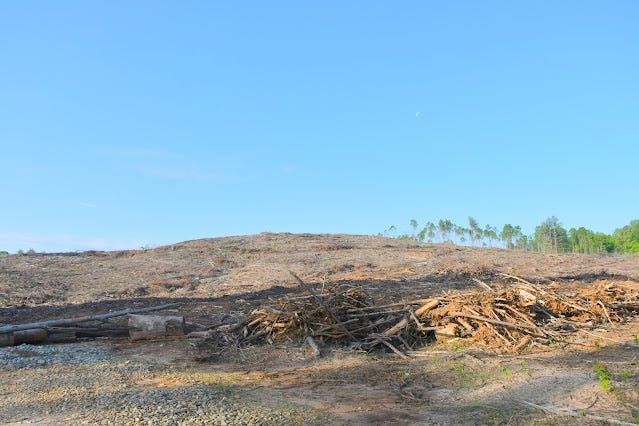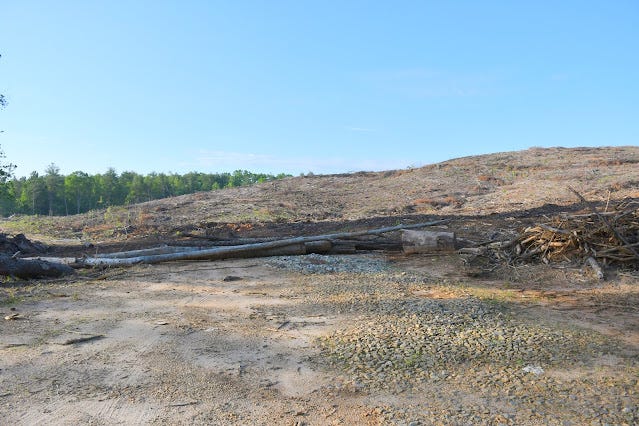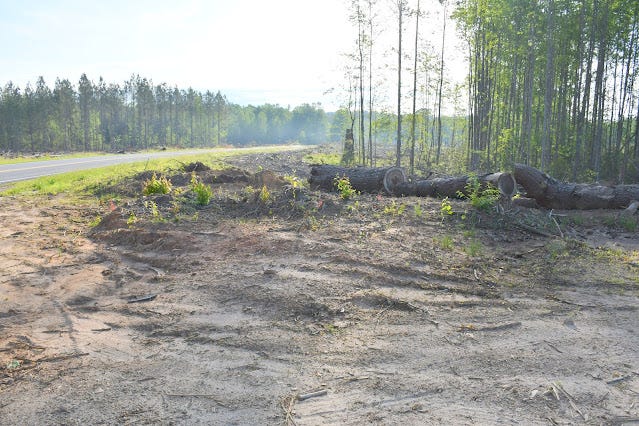New Developments and Accepting Our Predicaments Without Blame
May 08, 2024
Today's eclectic article has to do with new developments that have popped up recently, reiterating issues I have brought up previously, sometimes repeatedly. One of these things has to do with who and what we are as a species. This differs from us individually, as is demonstrated by the Maximum Power Principle (MPP). Still, violence within the confines of civilization is well-documented even if most individuals do not practice violence themselves. I have brought up the violence our closest cousins, chimpanzees, mete out within their tribes on numerous occasions to point out that this tendency (violence) is in our genes. Through many arguments over the past couple of years, it was pointed out to me that this is due to our patriarchal society rather than a strictly genetic basis and that having a matriarchal society resembling our second-closest cousins, the bonobos, would resolve this. I actually believed that up until now, when a new study has shown that this is not the case. There's an argument to made that in fact, there are two types of aggression in human violence and that there is a goodness paradox in which we have become more domesticated, meaning we have become both less violent and more violent. In any case, we don't have a matriarchal society at this point in time, and I highly doubt (but cannot rule out) that attempting such a society would have much effect on our set of predicaments being caused by our extreme overshoot condition.
I have also repeatedly pointed out how assigning blame really accomplishes very little if anything at all. I continue to see different documentaries which are absolutely laughable as they point the finger to different parts of the overall equation, many of which (like this one) turn out within the first 15 minutes to be unworthy of my time. A different documentary turned out to be better, but still made some glaring mistakes as I pointed out here, quote:
"Most of us here are well aware of how we are basically killing ourselves off through the ongoing pollution, pesticides, herbicides, fertilizers, antibiotics, and other additives, drugs, and chemicals our food is processed with, but this film does give an eye-opening view even for those of us familiar with this phenomenon.
I personally stopped eating fish and seafood in 2014 after learning of all the mercury and microplastics among other pollutants in them. I do miss eating seafood, but just couldn't stomach the risks involved in continuing it.
Watching the Indigenous tribes being wiped out by militarized gangs in South America is sickening. To realize that this same colonialistic behavior was done by our ancestors here in the US and many other locations around the world just makes my head spin. These same activities are now happening in Ukraine and Gaza. This is quite literally the Maximum Power Principle in action. The ugliness and depravity of it is extremely unsettling.
I disagree with the overall thesis of the movie - that all we have to do is get rid of animal production for meat to have a healthy and sustainable future. I know way too much about technology use; indeed, agriculture itself being the foundation of civilization makes our way of life unsustainable to begin with - meat is only part of the equation. So, while reducing or avoiding meat intake may be beneficial, it is our overall use of technology that is causing the ecological overshoot predicament we face. Technology use in its entirety must be reduced, not just meat eating. This will happen regardless of whether we want it to or not. Expecting this and comprehending our lack of agency is part of acceptance of the set of predicaments we face."
Needless to say, many of these documentaries get part of the overall equation correct, including ones which point the finger at emissions; but most all of them completely miss the fact that ecological overshoot is the predicament which should be highlighted, not climate change or biodiversity loss or extinction or pollution loading or disease or antibiotic resistance or any of the other symptom predicaments of overshoot. Furthermore, what should be highlighted is that our behavior of using technology is precisely what is causing this overshoot. Claiming that green or clean energy will solve it is hilarious since that doesn't actually change the unsustainable system of civilization, nor does it reduce overshoot.
Moving on to yet more issues that I have covered, a new study links CJD (Creutzfeldt-Jakob disease) in two deceased hunters to CWD (Chronic Wasting Disease) in infected deer. This issue isn't going to go away, as prions are literally indestructible. Here is a current map of where CWD is known in the US and Canada.
Speaking of Canada, two new articles (here and here) predict yet another year of massive wildfires. The day after I finished this article (but before it was published), I came across this article indicating that another year of massive wildfires is already here. I recently (a couple of months ago or so) posted information about Canada's "zombie" fires, which burn underground during the winter and then reignite in the spring or summer. This probably isn't very surprising to most people, given the huge spike in global temperatures over the last year.
New problems that most people including me never thought would be an issue are now popping up. I think that this is most likely related to the issues highlighted in this article I wrote two years ago.
Many people are far more naïve about all of this than they will admit, and here's an article based on this regarding an article Charles Hugh Smith wrote. It's really great information, and I appreciated the fact that Charles started his article out with a qualifier - that he doesn't "like" his forecast; and for those of you who didn't see it last week, this is how I ended my article then, quote:
"Next week I will delve into some topics I've covered in the past and how these have all worsened. Even my regular readers might be somewhat unsettled although most will likely be unsurprised. I strongly dislike being right on these issues, as it confirms everything I have pointed out in this blog - all things I don't want to be right about."
Similarly, I recently posted an article from Resilience which points out the predicament of attempting to escape from the iron age with this intro, quote:
"What if there is no escape? Once one understands that civilization itself is unsustainable because it relies on the technology of agriculture, and that all other advanced technologies rely on the infrastructure of agricultural civilization, one realizes that ALL human-built infrastructure is unsustainable and WILL collapse."
There's a website I would like to share which has a wealth of information shown in pictures and graphs as explained below, quote:
"The Anthroposphere refers to the human-built environment, including all the structures, infrastructure, and human settlements that exist on the surface of the earth. It is essentially the human-made world and the impact of human activities on the earth's surface.
In this sense, the Anthroposphere is to space what the Anthropocene is to time. Just as the Anthropocene represents the point in time when human activities began to significantly affect the earth's natural systems, the Anthroposphere represents the physical manifestation of that impact on the earth's surface. The Anthroposphere and the Anthropocene are two sides of the same coin, representing the physical and temporal aspects of the profound influence of human activities on the planet."
When I mention the "human-built world," this may be difficult for many people to visualize. So, the Anthroposphere gives a much more indepth view of precisely what I am talking about. Beware, much of the information available on that website may be rather depressing.
Speaking of depressing, new information about microplastics is constantly being made available and this article explains way more than most people will probably want to know about. Another article about toxins being absorbed from microplastics on the skin was published 3 days later. You are literally entirely engulfed in what could be termed "microplastic soup." All of this was inevitably going to happen. An outstanding article from Tim Morgan explores why we are surprised by these inevitabilities. Although his article is more about why we are surprised when impossibilities don't happen like we were led to believe, it's along these same lines of people being surprised by what was inevitable from the start.
In yet another interesting twist, on April 16, 2024, the Future of Humanity Institute closed up shop. Maybe they know that the future, if there is one, is indeed grim, quote:
"Established in 2005, initially for a 3-year period, the Future of Humanity Institute was a multidisciplinary research group at Oxford University. It was founded by Professor Nick Bostrom and brought together a select set of researchers from disciplines such as philosophy, computer science, mathematics, and economics to study big-picture questions for human civilization, attempting to shield them from ordinary academic pressures and create an organizational culture conducive to creativity and intellectual progress.
During its 19-year existence, the team at FHI made a series of research contributions that helped change our conversation about the future and contributed to the creation of several new fields and paradigms. FHI was involved in the germination of a wide range of ideas including existential risk, effective altruism, longtermism, AI alignment, AI governance, global catastrophic risk, grand futures, information hazards, the unilateralist’s curse, and moral uncertainty. It also did significant work on anthropics, human enhancement ethics, systemic risk modeling, forecasting and prediction markets, the search for extraterrestrial intelligence, and on the attributes and strategic implications of key future technologies. One major contribution was in showing that it was even possible to do rigorous research on big picture questions about humanity’s future.
Over time FHI faced increasing administrative headwinds within the Faculty of Philosophy (the Institute’s organizational home). Starting in 2020, the Faculty imposed a freeze on fundraising and hiring. In late 2023, the Faculty of Philosophy decided that the contracts of the remaining FHI staff would not be renewed. On 16 April 2024, the Institute was closed down.
Over the course of its nineteen years, FHI inspired the emergence of a vibrant ecosystem of organizations where the kinds of questions that FHI investigated can be explored. FHI alumni will continue to research these questions both within Oxford and at other places around the world. Topics that once struggled to eke out a precarious existence at the margins of a single philosophy department are now pursued by leading AI labs, government agencies, nonprofits, and specialized academic research centers (with many more in the process of creation)."
I've always found longtermism to be overshoot blind. If nothing else, some of the material I've read about it appeared to be along the same lines of what Tim Morgan is writing about in his article a few paragraphs up - impossibilities that people will be surprised about when they don't happen because they can't. It's very similar to the idea of civilization continuing and how many people will be so surprised when it never goes back to the way things were at the peak (because it can't). Of course, many people will seek to find someone or something to blame for why civilization collapsed when in reality that was the only thing it could do. Dave Pollard writes this article about why everything is falling apart in an effort to avoid assigning blame and two parts jump out at me with the first being this, quote:
"There is increasing scientific evidence that, just like every other creature on the planet, what we each believe and do is entirely the result of our biological conditioning (what our DNA and our body chemistry ‘tells’ us to do), and our cultural conditioning (what the people we know, the things we study, our environment and our experiences ‘tell’ us to do), given the always-unpredictable circumstances of each moment. When you yell at someone for cutting you off in traffic, that’s not ‘your’ decision; it’s just your conditioning playing itself out. Your conditioning will change as you’re exposed to new information and experiences, but ‘you’ aren’t changing it.
That might sound hopeless, but it really isn’t. As our conditioning to new information and experiences has changed us, we’ve come to believe, for example, that being gay is biological, not a mental illness. We’ve learned that diseases that we once thought were the result of poor parenting, or “evil spirits”, have natural causes, and their sufferers and families deserve our support, not our condemnation.
When you come to realize that our situations, our beliefs and behaviours are the result of our conditioning, and not something we have any free will or control over, it makes you inclined to try to understand what underlies actions that we dislike — like violence and war and dishonesty and selfishness — instead of seeking to blame someone or something for those actions.
In many cases, what underlies these actions are deep-seated feelings of anger, hatred, grief, and especially fear, that metastasize in us as trauma, just waiting to be stirred up and triggered in us by some event that actually has nothing to do with the long-ago event that conditioned us to react the way we do — the way we have no choice but to react. In some cases that trauma is even passed down from generation to generation in our DNA and in the body chemistry we inherit from our parents."
Then he explains the second way that everything is falling apart, again, without blaming anyone, quote:
"So when we look at wars, at murders, at domestic abuse, at animal abuse, at racism, at bullying, at lying, at oppression, at misogyny, or at any other form of violence or hatred, we can, if we look hard enough, understand it as a conditioned behaviour, something the perpetrators and participants had absolutely no control over. That doesn’t mean we condone that behaviour; it just means we recognize that, given the conditioning of those involved, that outcome was explainable and, sadly, inevitable.
So what do we do with that? Just throw up our hands and say that such atrocities are just ‘the way we are’ and we just have to accept them? Well actually, understanding the conditioning that led to them is a very important action in itself. That understanding can lead us to avoid escalating the situation, and to starting to address the factors that led to that misbehaviour or atrocity, so that, perhaps, we can begin to condition each other to mitigate or even prevent such misbehaviours and atrocities in the future. Blaming people, calling them evil or malicious or insane, will not change anything, other than perhaps leading to even more misbehaviours and atrocities in self-justified retaliation. But if we have been conditioned to blame, rather than to try to understand, we will blame.
So, this is why everything is falling apart, when no one is actually to blame. In part, it’s because everything humans make falls apart, everything collapses when it is no longer sustainable, when it gets too big or too old or too complicated to hold. And in part, it’s because everything we do is conditioned behaviour, often irrational behaviour, and that behaviour, over which we have no control, is often destructive and contributes to everything falling apart, despite us all doing our best and having the best intentions in what we do."
He goes on to explain the third part, our social behavior and collaboration, along with what will happen as collapse unfolds. I'm not as optimistic that collapse will unfold for possibly a millennium or for generations. However, I do agree that things will happen much more slowly than many people think except for stair steps down to the next level of simplicity. I do like the reminders that Dave brings to the forefront, as I think we all need them at one point or another to keep us mindful of the nature of the predicaments we face; especially the impermanence of everything and the continuous change being the only constant of life.
Before I close this week, I shall leave you with this bit of knowledge from Richard Adrian Reese, which actually looks like many of the articles here. It is a sample from a new book he is working on titled, Wild, Free, & Happy. Enjoy, and until next time, Live Now!



